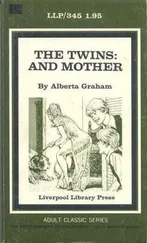Harry Graham - The Mother of Parliaments
Здесь есть возможность читать онлайн «Harry Graham - The Mother of Parliaments» — ознакомительный отрывок электронной книги совершенно бесплатно, а после прочтения отрывка купить полную версию. В некоторых случаях можно слушать аудио, скачать через торрент в формате fb2 и присутствует краткое содержание. Жанр: foreign_prose, на английском языке. Описание произведения, (предисловие) а так же отзывы посетителей доступны на портале библиотеки ЛибКат.
- Название:The Mother of Parliaments
- Автор:
- Жанр:
- Год:неизвестен
- ISBN:нет данных
- Рейтинг книги:5 / 5. Голосов: 1
-
Избранное:Добавить в избранное
- Отзывы:
-
Ваша оценка:
- 100
- 1
- 2
- 3
- 4
- 5
The Mother of Parliaments: краткое содержание, описание и аннотация
Предлагаем к чтению аннотацию, описание, краткое содержание или предисловие (зависит от того, что написал сам автор книги «The Mother of Parliaments»). Если вы не нашли необходимую информацию о книге — напишите в комментариях, мы постараемся отыскать её.
The Mother of Parliaments — читать онлайн ознакомительный отрывок
Ниже представлен текст книги, разбитый по страницам. Система сохранения места последней прочитанной страницы, позволяет с удобством читать онлайн бесплатно книгу «The Mother of Parliaments», без необходимости каждый раз заново искать на чём Вы остановились. Поставьте закладку, и сможете в любой момент перейти на страницу, на которой закончили чтение.
Интервал:
Закладка:
By the end of the fourteenth century Westminster Hall had fallen into disrepair, and during the reign of Richard II., when the poet Chaucer was clerk of the works, it was rebuilt, the expense being met by a tax levied upon all foreigners in the kingdom. Richard celebrated the event by keeping Christmas there in a suitably seasonable fashion, "with daily justings and runnings at tilt; whereunto resorted such a number of people that there was every day spent twenty-eight or twenty-six oxen, and three hundred sheep, besides fowl without number." 96 96 Stow's "A Survey of London," p. 173.
Prior to the days when such feats of engineering as the building of the modern Thames Embankment were possible, the proximity of the Palace to the river necessitated a system of constant repair. Until confined within reasonable limits, the Thames showed a disposition to overflow its banks upon the slightest provocation, much to the inconvenience of the royal residents in the neighbourhood. In 1236 the Palace was completely flooded, so that "men did row with wherries in the midst of it," and six years later a similar fate befell Westminster Hall. In 1579 the river once more trespassed upon the royal domain, fish being afterwards found in a moribund condition on the floor of the Great Hall. The latter, indeed, continued to be visited by periodical floods as late as the year 1841.
Fire, too, seems to have proved a constant menace to the safety of the palace, though at the time of the Fire of London the Great Hall was one of the few places in which citizens could store their goods out of harm's way. In 1299 part of the palace was burnt to the ground, and at the beginning of the sixteenth century so great a proportion of it fell a prey to a "vehement conflagration" that Henry VIII. decided to forsake it altogether, and removed his court to Whitehall. Since that day royal personages have ceased to lodge at the Palace of Westminster, which is still, however, nominally a royal residence, and as such remains in the custody of an officer of the King's household. 97 97 The Lord Great Chamberlain, who holds an hereditary freehold office of state, is the custodian of the Palace of Westminster. He was originally an executive officer of the King's household, appointed to look after the royal residence. In 1133 the office was granted by Henry I. to Aubrey de Vere, father of the first Earl of Oxford, and to his heirs. Henry VIII. gave the post on several occasions for life to different favourites, not necessarily of the De Vere family, but since the time of Elizabeth the Lord Great Chamberlainship has been held without exception by descendants of the Earl of Oxford. To-day the families of Cholmondeley on the one side, and Ancaster and Carrington on the other, share the privileges of the office, a representative of each branch holding the Chamberlainship in turn during the lifetime of alternate sovereigns. The Lord Great Chamberlain retains authority over the buildings of both Houses, even during the session, whenever Parliament is not sitting. Here his official responsibilities end. In former times a considerable part of his duties consisted in attending his sovereign at the Coronation, when he was not only expected to dress the King, to "carry the coif, swords, and gloves, etc."; but also to undress him, and to wait on him at dinner, "having for his fee the King's bed and all the furniture of his chamber, the night apparel and the silver basin wherein the King washes, with the towels." It is traditional that if the King sleeps at Westminster he must occupy the Lord Great Chamberlain's house. George IV. did so on the eve of his Coronation, the Speaker of the House of Commons handing over his residence for the purpose to the Lord Great Chamberlain for a nominal fee. On this occasion the officials in waiting on His Majesty spent a restless night. Lord Gwydyr, the Deputy Lord Great Chamberlain, and his secretary, took their stand on one side of the King's chamber, and the Gentleman Usher of the Black Rod on the other, and there they remained until morning. (See "The Gentleman's Magazine." July, 1821.)
The Great Hall still continued to be used as the most appropriate stage for State ceremonies, for coronations and the banquets with which such events were celebrated. It was also the scene of most of the great State trials famous in English history. Such men as William Wallace, the Earls of Arundel, of Essex, and of Strafford, were here arraigned upon a charge of high treason; here Charles I. was condemned to death. In Westminster Hall Titus Oates was stripped of his ecclesiastical habit and exposed to public obloquy, with a placard upon his breast declaring his offence. Beneath this wide oak roof the Duchess of Kingston was tried for bigamy, much to her delight. Here, too, Warren Hastings faced his accusers, and triumphed over them. This is the Hall, as Macaulay says in a well-known passage, which witnessed the just sentence of Bacon and the just absolution of Somers; the Hall where the eloquence of the latter for a moment awed and melted a victorious party inflamed with just resentment. This, we may now add, is the Hall where the body of Gladstone lay in state, and the mortal remains of King Edward VII. received the homage of his sorrowing subjects.
No State trial has been held in Westminster Hall since Lord Melville was acquitted there in 1806, and on the only recent occasion on which a member of the House of Lords was tried by his peers, on July 18, 1901, the Royal Gallery of the Lords was fitted up as a court.
For centuries the coronation feasts, which were held in Westminster Hall, provided the public with a stately and imposing spectacle. Not the least interesting part of the ceremony consisted in the entrance of the King's Champion, clad in armour and mounted upon a fiery charger, who flung down his gauntlet and challenged to mortal combat all who dared to question the monarch's right to the throne. The feat required some personal courage, as well as the possession of a docile steed, for if it were not accomplished successfully the effect might well be ludicrous. Before the coronation of George III., Horace Walpole relates, Lord Talbot had spent much care in training his charger to walk backwards, so that it might make a graceful exit from the Hall without ever exposing its tail to the royal gaze. Unfortunately, the lesson had been too well learnt, and the horse insisted upon entering the Hall backwards, much to the amusement of the spectators.
Sovereigns are no longer crowned in Westminster Hall, but in the Abbey close by, and no coronation feast has been held there since the accession of George IV., when the guests repaid their sovereign's hospitality by carrying away most of his spoons as souvenirs of the event. The Hall has, however, been the scene of other less-important banquets, as, for instance, in 1905, when the officers of the visiting French fleet were entertained there as the guests of the British nation.
To Westminster Hall, Henry II. summoned his Barons in Council, and in the reign of Henry III. parliaments were often held there. Gradually, however, the building became devoted exclusively to the judicial side of the king's Great Council, and, when Edward I. occupied the throne of England, the Courts of King's Bench and Chancery held their meetings regularly at the south end of the Hall. Peter the Great, during a brief stay in England, paid a visit to Westminster Hall, and was much struck by the presence of a number of busy people in long black gowns and bobtailed wigs. On being informed that these were lawyers, "I have but two in my dominions," he observed thoughtfully, "and I believe I shall hang one of those directly I get home!"
New buildings were erected in 1738, on the west side of the Hall, to accommodate the judges, and when, about a hundred and fifty years later, the Palace of Justice was built in the Strand, the representatives of the law emigrated thither in a body.
Читать дальшеИнтервал:
Закладка:
Похожие книги на «The Mother of Parliaments»
Представляем Вашему вниманию похожие книги на «The Mother of Parliaments» списком для выбора. Мы отобрали схожую по названию и смыслу литературу в надежде предоставить читателям больше вариантов отыскать новые, интересные, ещё непрочитанные произведения.
Обсуждение, отзывы о книге «The Mother of Parliaments» и просто собственные мнения читателей. Оставьте ваши комментарии, напишите, что Вы думаете о произведении, его смысле или главных героях. Укажите что конкретно понравилось, а что нет, и почему Вы так считаете.












